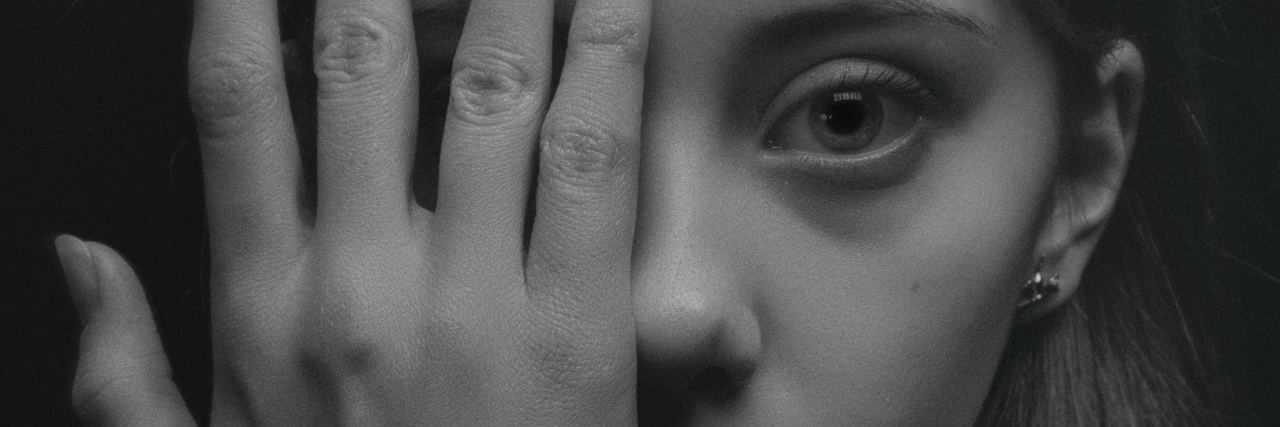Finding Out What Anorexia 'Recovery' Really Means
Editor's Note
If you live with an eating disorder, the following post could be potentially triggering. You can contact the Crisis Text Line by texting “NEDA” to 741741.
I’ve been in the hospital for four months now. I’ve spent hours answering doctors, nurses, psychologists, dietitians, occupational therapist questions, and all of them asked: “What are your aims?” “What do you want?” “What does recovery mean to you?”
I never really know how to respond, I sit there with my mouth pierced closed, my mind racing at a million miles an hour, my heart pounding in my throat. You see, I never really know how to answer. I want to say “a perfect recovery.” The kind where I wake up and think “I’m going to eat today, and it won’t matter to me.” Where each mouthful doesn’t fill me with guilt and shame. But the truth is, this probably won’t happen.
When I went from general to the eating disorder unit, I broke down over the glass of milk they wanted me to drink. I sat there sobbing like it was poison; I spit the first mouthful back into the cup, my mouth simply rejecting the food. I knew I needed to change, but I didn’t suddenly kick into gear and become better because I walked through doors with the letters “EDU” on them. That was two and a half months ago now, yet I’m still struggling. I don’t have perfect meal completion. I still work out in my room sometimes. Sometimes, I find myself leaning over a toilet, only to pull myself back and cry in the corner of the bathroom instead. This is the truth of recovery. This is the reality. In my head, it was a “quick fix.” In my head, I was going to wake up one day and be “cured,” eat cake, chocolate and sweets like they were nothing, eat anything like it was nothing. I thought I’d be able to lie in bed for a minute past six and not feel awful atomically, because I was “recovering.” I thought that word would put me in a positive bubble, where anorexia nervosa can’t touch me, where the past can’t hurt me, where I would be safe.
But the truth, the reality, is recovery is eating cake at dessert, but maybe only managing one mouthful at first and breaking down that night because you feel like a “failure.” A “failed” anorexia for eating the cake, and a failed member of recovery for not finishing it. Recovery is the fact the cake was delicious, whether I want to accept it or not.
Recovery is feeling bloated late in the evening, and still having a night snack to come. It’s feeling like you possibly couldn’t eat another mouthful, like you’re well and truly stuffed, but it’s eating regardless.
Recovery is feeling awful for sitting down after a meal, and thoughts overwhelming your mind. The desire to sprint around the room, anything, to burn off the food you just ate, but sitting there, putting all your brain power into not… moving… your… leg.
Recovery is messy. Recovery is falling face first, again and again and again. Recovery is blood, sweat and tears. Recovery is reliving every traumatic event that put you in this place. Recovery is forgetting what it’s like to live. Recovery is pausing the outside world, putting everything on hold. Recovery is surviving each day, one meal at a time.
Recovery was never going to be easy. It was never going to be a “quick fix.” You were never going to wake up one day and think, “I’m going to eat today and feel great about it,” but it is always going to be worth it.
Recovery is messy, but you, family, nurses, doctors, psychologists, dietitians and occupational therapists will help clean it up with you, and for you when you are too tired and weak to hold the broom. Recovery is falling face first, again and again and again, but getting back up each and every time. Recovery is blood, sweat and tears, but washing yourself off and putting plasters on the wound, allowing them to heal for once. Recovery is reliving every traumatic event that put you in this place, but it is also facing it so you’ll never have to live it again. Recovery is forgetting what it’s like to live, in order for you to be able to live. Recovery is pausing the outside world, putting everything on hold, in order for your life to no longer be on hold, so you never have to lose another second, day, year of your life to this disorder. Recovery is surviving each day, one meal at a time, so you can stop dying each day and start living.
Follow this journey on the author’s Instagram.
Photo by Alexander Krivitskiy on Unsplash

